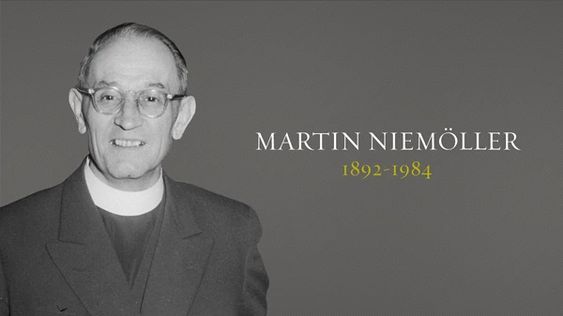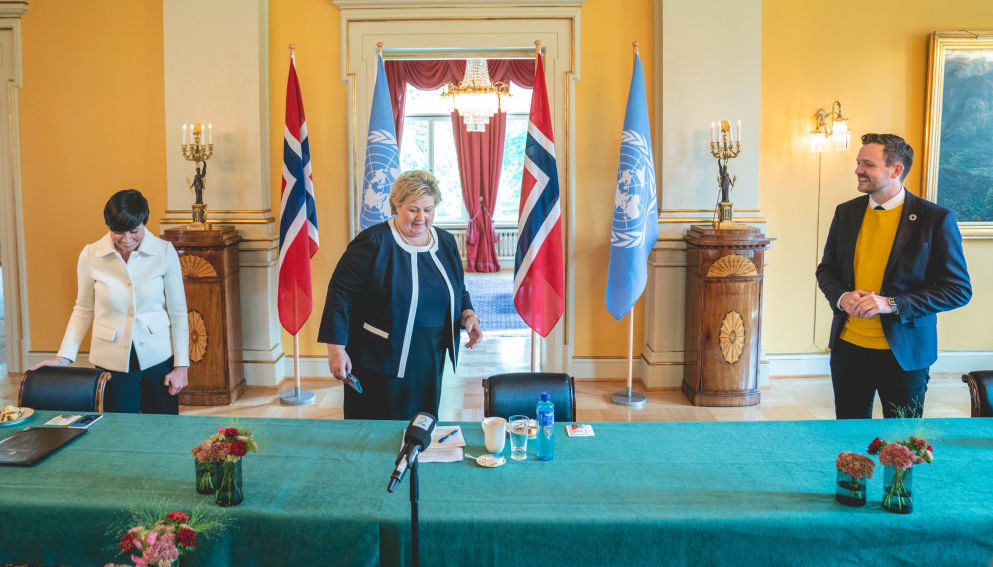
“First they came …” is the poetic form of a prose post-war confession first made in German in 1946 by the German Lutheran pastor Martin Niemöller (1892–1984). It is about the cowardice of German intellectuals and certain clergy (including, by his own admission, Niemöller himself) following the Nazis‘ rise to power and subsequent incremental purging of their chosen targets, group after group. Many variations and adaptations in the spirit of the original have been published in the English language. It deals with themes of persecution, guilt, repentance, and responsibility.
Martin Niemöller was a German Lutheran pastor and theologian born in Lippstadt, Germany, in 1892. Niemöller was an anti-Communist and supported Adolf Hitler‘s rise to power at first. But when Hitler insisted on the supremacy of the state over religion, Niemöller became disillusioned. He became the leader of a group of German clergymen opposed to Hitler. In 1937 he was arrested and eventually confined in Sachsenhausen and Dachau. He was released in 1945 by the Allies. He continued his career in Germany as a clergyman and as a leading voice of penance and reconciliation for the German people after World War II.
A longer version by the Holocaust Memorial Day Trust, a charity established by the UK government, is as follows:[4]
First they came for the Communists
Martin Niemöller 1946
And I did not speak out
Because I was not a Communist
Then they came for the Socialists
And I did not speak out
Because I was not a Socialist
Then they came for the trade unionists
And I did not speak out
Because I was not a trade unionist
Then they came for the Jews
And I did not speak out
Because I was not a Jew
Then they came for me
And there was no one left
To speak out for me



